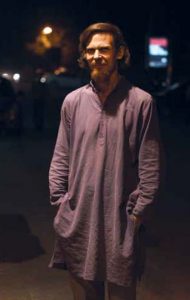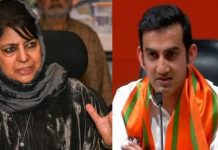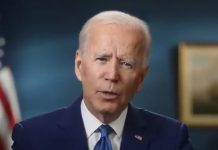 Right from the onset of Sense and Solidarity-Jholawala Economics for Everyone, author Jean Dreze sets the tone for the whole book, which is to unravel the simple human facets of the mammoth statistics affecting our lives. Revered as one of the finest development economists of the world, Jean Dreze dissects the relationship of the Indian economy with that of the millions still in need of the basic amenities, promised by a developing country. Dreze, himself an activist-economist, attempts to enumerate the factors impacting our perspective of a socially impaired society; factors that are considered ‘unfashionable’ but nevertheless offer a view of a changing society.
Right from the onset of Sense and Solidarity-Jholawala Economics for Everyone, author Jean Dreze sets the tone for the whole book, which is to unravel the simple human facets of the mammoth statistics affecting our lives. Revered as one of the finest development economists of the world, Jean Dreze dissects the relationship of the Indian economy with that of the millions still in need of the basic amenities, promised by a developing country. Dreze, himself an activist-economist, attempts to enumerate the factors impacting our perspective of a socially impaired society; factors that are considered ‘unfashionable’ but nevertheless offer a view of a changing society.
Sense and Solidarity is a collection of essays co-authored with some of Dreze’s colleagues and friends. The essays, written over a period of time, is divided into 10 chapters- ‘Drought and Hunger’, ‘Poverty’, ‘School Meals’, ‘Health Care’, ‘Child Development and Elementary Education’, ‘Employment Guarantee’, ‘Food Security and Public Distribution System’, ‘Corporate Power and Technocracy’, ‘War and Peace’ and ‘Top-Up’. Each chapter includes essays most relevant to the theme. Most of the essays have been previously published in the ‘The Hindu’. The author had previously co-authored books like Hunger and Public Action and An Uncertain Glory: India and its Contradictions with Nobel Prize-winning economist, Amartya Sen, among others.
While the essays reflect mainly on the social policy changes that the given topic has witnessed over time, what they repeatedly focus on is the concept of research-oriented action or as Dreze calls it ‘Research for Action’. In the words of Dreze, the concept reflects on how ‘research can help with arguments and evidence that contribute to more effective action’. It also calls out the existing norm of using excessive verbose phraseology among economists which make their papers difficult for the masses to comprehend and hence creates a wall in the contribution to action.
Some of the observations made by Dreze and his co-authors reveal a fallout of the development policies in areas where they are most required. Dreze points out three basic reasons for these failures- inefficiency, corruption and exploitation. The toll of these issues in the mental and physical health of the population lies unattended. As far as Dreze’s field research goes, corruption has hampered even the basic functioning of the Public Distribution System(PDS) in inaccessible areas of the country, a subject that he explores throughout the book. In addition to that, while the traditional methods of livelihoods are collapsing there is a lack of suitable alternatives for the people coming out of these means of living. In the essay, ‘Fragile Lifelines, Robust Oppression’, Dreze talks about his experience across the Kalahandi-Bolangir-Korapur region of Odisha. While, the region’s economic backwardness had many contributing factors, it was a less observed factor which was taking a toll on its inhabitants. That of declining land productivity and lack of economic diversification.
Throughout the book, the author calls out the inconsistencies in statistical inferences because of the fact that undermines real human problems that can only be experienced by visiting and talking to the subjects first-hand. Dreze’s instead uses insights from his field surveys conducted by student volunteers. What is interesting about these surveys is that most of the student volunteers working for Dreze and Dr. Reetika Khera were either paid very low or were not paid at all. This again was part of their campaign which called for “Hard work, No pay”. To Dreze’s surprise, the response to this campaign was overwhelming and students from almost all over the country applied for the programme to work in the remote areas of the country with little or no resources. Here Dreze also points out the concept of donations with no strings attached. For the author, the dependence of academic research on funding agencies have serious repercussions, especially, if the agency has its own agenda in the research. However, doing away with funding agencies means adopting a low-cost research process, which again is a difficult proposition for many academic researchers.
While most policies are drafted for the advantage of the economically backward, what they lack is the inclusion of all aspects of any issue. Dreze, for example, questions the Draft Approach Paper policy to the 11th plan for undermining the bigger issue of the state of Indian children, especially, those under the age of six. It should be noted that nearly half of India’s children under six years of age are undernourished, while more than half suffer from Anaemia. While such children are covered under the Integrated Children Development Scheme (ICDS) also known as the Anganwadi scheme, only half of these children are registered with the scheme and a plan to provide full coverage for all children is yet to be implemented. The bigger worry, as pointed out by the writer, is the apathy of the officials towards the scheme, thanks to the notion that the scheme cannot work. However, Dreze says that evidence as provided by Focus on Children Under Six (FOCUS), offers enough evidence that the scheme is, in fact, effective but needs to be made more efficient. As the Economist puts it, “A decent society cannot be built on the ruins of hunger, malnutrition, and ill health.”
One of the early supporters of the National Rural Employee Guarantee Act (NREGA), Dreze, in the essay, Employment Guarantee’, explores how the scheme has shown some actual achievements by including economically weaker sections like Dalits in its ambit. However, here the author believes that like many other programmes in India, NREGA, too, has to work on the accountability factor if the interests mentioned in the plan are to be achieved. The scheme is plagued by issues pertaining to the volition of workers’ entitlements. The problems, Dreze says, lies in the huge social distance that separates government officials from NREGA workers. The economist best explains it as a pro-worker law implemented by an anti-worker system.
With the PDS, NREGA and most of the public policies covered in the book, Dreze did not shy away from the controversial topic of Aadhaar either. In the essay titled, ‘Unique Identity Dilemma’, Dreze points out that although the UID seems like a “foolproof solution” to identity verification in India, the scheme’s uncertain terms need to be questioned. Because, while the UID has in itself been claimed to be voluntary, it has been made mandatory for accessing the benefits of important social schemes like the NREGA and PDS. According to the writer, this not only creates the issue of social control but also fails to offer a back-up for areas with technological connectivity. Further, since there is no privacy law guiding it, the public has basically no protection against the misuse of their personal data.
In all, Sense and Solidarity does break down complex and inarticulate numerical data into simple human statistics through the use of actual field experience. Unlike, many books in this domain the language is simple and easy for everyone to understand. Most importantly, Dreze remains true to the core aspect of the book — engaging the policymakers and the Jholawalas to start an inclusive deliberation on social policy planning.
letters@tehelka.com












